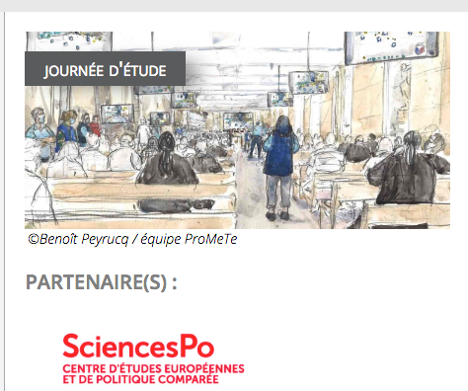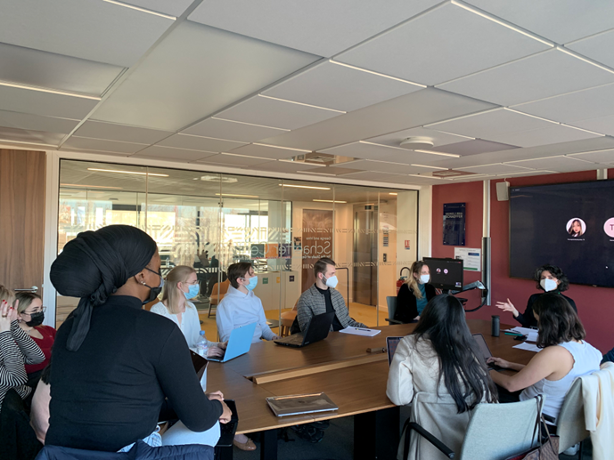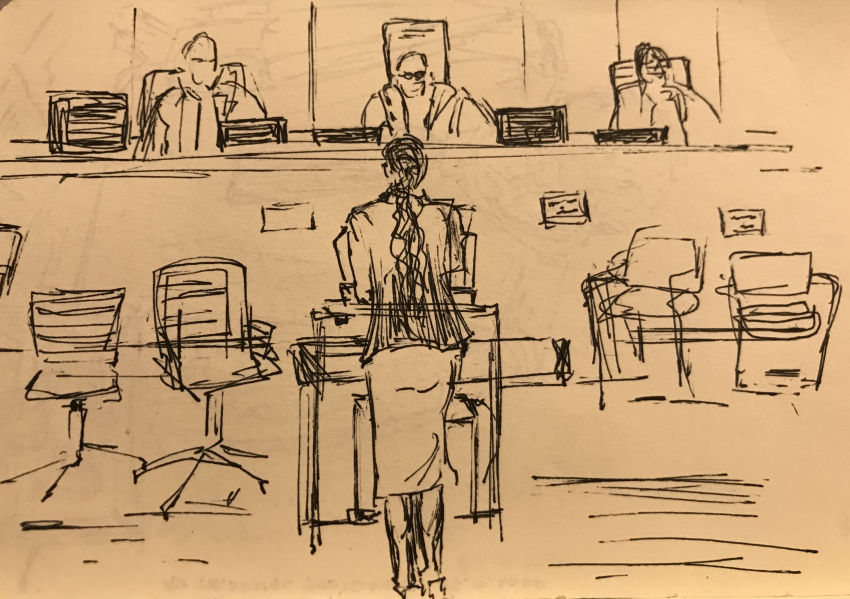
- About BT����
- History of BT����
- Mission & Core Values
- Vision and Leadership
- BT���� Recognition
- Alumni Success
- Campus Development
- Arts at BT����
- Policies & Guidelines
- Academics
- Undergraduate
- Graduate Programs
- MA in Diplomacy and International Law
- MA in Global Communications
- MSc in Human Rights and Data Science
- MA in International Affairs
- MA in International Affairs, Conflict Resolution, and Civil Society Development
- MSc in International Management
- MSc in Strategic Brand Management
- Find Your Thesis Advisor
- Previous Programs
- Cultural Program
- Faculty
- Summer School
- Research Centers
- The Center for Critical Democracy Studies
- The Center for Writers and Translators
- The George and Irina Schaeffer Center for the Study of Genocide, Human Rights and Conflict Prevention
- The Joy and Edward Frieman Environmental Science Center
- The Center for Media, Communication & Global Change
- Departments
- Academic Resources
- Academic Affairs
- Academic Calendar
- Academic Resource Center
- Library
- Registrar's Office
- Teaching and Learning Center
- Employer Network
- Accessibility & Accommodation Services
- Quai D'Orsay Learning Commons
- Paris as Classroom
- ACE Center
- Admissions
- Student Life
- Campus
- Student Leadership & Involvement
- Paris
- Support Services
- Student Development Help Desk
- Student Accounting Services
- Student Immigration Services
- Student Grievance Procedure
- Diversity and Inclusion
- Health & Well-being
- Digital Student Handbook
- News
- Events
- BT���� Giving
- Housing Offer for 2024-2025
- Housing | Spring 2024
- IRIS Project
- IT Services
- Alumni
- About BT����
- History of BT����
- Mission & Core Values
- Vision and Leadership
- BT���� Recognition
- Alumni Success
- Campus Development
- Arts at BT����
- Policies & Guidelines
- Academics
- Undergraduate
- Graduate Programs
- MA in Diplomacy and International Law
- MA in Global Communications
- MSc in Human Rights and Data Science
- MA in International Affairs
- MA in International Affairs, Conflict Resolution, and Civil Society Development
- MSc in International Management
- MSc in Strategic Brand Management
- Find Your Thesis Advisor
- Previous Programs
- Cultural Program
- Faculty
- Summer School
- Research Centers
- The Center for Critical Democracy Studies
- The Center for Writers and Translators
- The George and Irina Schaeffer Center for the Study of Genocide, Human Rights and Conflict Prevention
- The Joy and Edward Frieman Environmental Science Center
- The Center for Media, Communication & Global Change
- Departments
- Academic Resources
- Academic Affairs
- Academic Calendar
- Academic Resource Center
- Library
- Registrar's Office
- Teaching and Learning Center
- Employer Network
- Accessibility & Accommodation Services
- Quai D'Orsay Learning Commons
- Paris as Classroom
- ACE Center
- Admissions
- Student Life
- Campus
- Student Leadership & Involvement
- Paris
- Support Services
- Student Development Help Desk
- Student Accounting Services
- Student Immigration Services
- Student Grievance Procedure
- Diversity and Inclusion
- Health & Well-being
- Digital Student Handbook
- News
- Events
- BT���� Giving
- Housing Offer for 2024-2025
- Housing | Spring 2024
- IRIS Project
- IT Services
- Alumni
- About BT����
- History of BT����
- Mission & Core Values
- Vision and Leadership
- BT���� Recognition
- Alumni Success
- Campus Development
- Arts at BT����
- Policies & Guidelines
- Academics
- Undergraduate
- Graduate Programs
- MA in Diplomacy and International Law
- MA in Global Communications
- MSc in Human Rights and Data Science
- MA in International Affairs
- MA in International Affairs, Conflict Resolution, and Civil Society Development
- MSc in International Management
- MSc in Strategic Brand Management
- Find Your Thesis Advisor
- Previous Programs
- Cultural Program
- Faculty
- Summer School
- Research Centers
- The Center for Critical Democracy Studies
- The Center for Writers and Translators
- The George and Irina Schaeffer Center for the Study of Genocide, Human Rights and Conflict Prevention
- The Joy and Edward Frieman Environmental Science Center
- The Center for Media, Communication & Global Change
- Departments
- Academic Resources
- Academic Affairs
- Academic Calendar
- Academic Resource Center
- Library
- Registrar's Office
- Teaching and Learning Center
- Employer Network
- Accessibility & Accommodation Services
- Quai D'Orsay Learning Commons
- Paris as Classroom
- ACE Center
- Admissions
- Student Life
- Campus
- Student Leadership & Involvement
- Paris
- Support Services
- Student Development Help Desk
- Student Accounting Services
- Student Immigration Services
- Student Grievance Procedure
- Diversity and Inclusion
- Health & Well-being
- Digital Student Handbook
- News
- Events
- BT���� Giving
- Housing Offer for 2024-2025
- Housing | Spring 2024
- IRIS Project
- IT Services
- Alumni
Scholars have raised deep concerns on the impact of terrorism legislative framework on individual liberty and liberal doctrines of law. Through an empirical research in courtrooms, it is aimed to examine the implementation of terrorism laws and the emerging role of national courts as��transnationalized��actors: how these courts reinforce, protect, and promote certain political goals and visions in the context of terrorism.
Beginning in 2017, Prof Weill has been conducting ethnographic research within French terrorism trials in a project financed by the French Ministry of Justice/CNRS. (2017-2019) and Open Society Justice Initiative (2018/ Courtwatch).
1 - The Bataclan Trial
On November 13th, 2015, a series of coordinated terrorist attacks took place in Paris, France, resulting in widespread destruction and loss of life, particularly at the concert venue Bataclan and nearby bars. This was the most devastating attack in the country's history. After a comprehensive six-year investigation, a landmark trial commenced, lasting ten months and encompassing 20 defendants, 400 lawyers, and over 2,500 victims. During this time, students from the Justice Lab had the opportunity to observe the trial proceedings at the Palais de Justice, and engage with anthropological researchers, lawyers, and victims to gain a comprehensive understanding of transnational justice, the effects on victims, and the ramifications of jihadist radicalization.
��
Sharon Weill co-organized a major conference at Sciences Po with different researchers with the support of the Schaeffer Center:
��

��
��

��
Seminars in class and Open Lectures for BT���� Community��
During the semester we invited different researchers and actors involved in the ongoing trial to present to the class, enabling students to engage in depth with the issues arising in connection with the trial. In the picture an anthropologist from Columbia university discusses her research on the reparation terrorism programs.
��
Assisting a lawyer for the victims
In addition to attending court, Weill’s Spanish-speaking students volunteered to support human rights lawyers who represent families of Spanish and Chilean victims by translating the transcripts of trial proceedings into Spanish. According to Stephanie Bergon a student of the Justice Lab: “I have found myself applying the theory I encountered in class in real-life scenarios.” Yuliana Calvillo Solis, a graduate student participating in the project said that “the biggest takeaway for me has been the importance of truth and forgiveness for the healing process".
/story/collaboration/students-attend-terror-trial
2 - The Charlie Hebdo��Trial

One of the most remarkable things about this trial was that it worked like two processes running in parallel, barely connected, as a platform for the victims, but a weak criminal case. During the “truth commission” element of the trial, victims recounted the horrors of the attacks. The criminal responsibility element of the trial, on the contrary, seemed to be much less linked to these events, with those on trial being markedly far removed from the facts recounted by the victims. This suggests that there may be things to learn from the domain of transitional justice where both criminal justice, truth-telling, and accountability settings are to be taken into account.
3 - Ethnography of French Terrorism Trials
Beginning in 2017, Prof Weill has been conducting ethnographic research within French terrorism trials in a project financed by the French Ministry of Justice. The research is conducted as part of a multi-disciplinary research group including Christiane Besnier (anthropologist), Antoine Mégie (political scientist ) and Denis Salas (judge).
Publication/In the press
- “”, Journal of Law and Society (2020) Vol 47, Issue S1, pp 30-53.
- “”, International Review of the Red Cross, Volume 100, Issue 907-909 (Cambridge University Press, 2019).
- “” (“Jihadists on Trial: An Ethnographic Approach to Criminal Trials (2017-2019”): Report for the French Ministry of Justice co-authored with Christiane Besnier (anthropologist), Antoine Mégie (sociologist) and Denis Salas (judge). The report is the result of 36 months of empirical research in court. It was published on the Ministry’s website in March 2020 (GIP/CNRS)��
- Interviewed for French Daily Le Monde,��, by Jean-Baptiste Jacquin,��10 March 2020��
- Interview for��(GIP - Ministry of Justice/ French National Center for Scientific research-CNRS), March 2020��
- , article by Pierre Januel, Dalloz publication, 5 February 2020.
- Interviewed for the New York Times: “Paris Trial Shows Faltering Evolution of a Jihadist Cell”, by Adam Nossiter, 13 April 2018.
4 - Court Watch
During this project we observed terrorism proceedings before criminal and administrative courts and initiated students form Sciences po Paris and Paris 2 to do trial monitoring. We submitted a report to the UN��Special Rapporteur on the promotion and protection of human rights and fundamental freedoms while countering terrorism. This��project was�� financed by Open Society Foundation and OSJI (2019-2020).����
- ��in a closed workshop with George and Amal Clooney who launched their Trial Watch project.��
- “” - Report prepared for the official visit of the UN Special Rapporteur on Counter-Terrorism and Human Rights (May 2018). (The report was cited in the��)��
5 - Guantanamo Trials
Sharon Weill, “Military��Courts and��Terrorism: The 9/11 Trial��before��the Guantanamo Bay��Military��Jurisdiction”, in����(Edward Elgar, 2020).��
